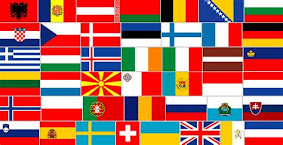 |
| The thin end of the wedge? |
I do know how this ironic sequential syncronicity affected me personally, though I am in no sense a paradigmatic “X-Man.” In my adolescent mind, as a teenager in the '80s, sex and certain death came to be inextricably intertwined in ways they had never before been associated in human history. To have sexual intercourse was to make oneself vulnerable to a dread plague that viciously ate away at your insides until you perished in horrific pain. You didn’t get better, and there was no cure.
Thus, the occasion of the rise of a particularly devastating sexually transmitted disease, which if anything seemed like a pressing reason to refrain from non-monogamous sexual relationships, became for many a rallying cry for carrying forth the dictates of the Sexual Revolution, for pathologizing “repression” and declaring any aversion to deviance to be “hateful.” The prevalence of a virus largely transmitted through gay male sex became a reason, not to implore people to avoid gay male sex, but rather to insist that buggery be seen as a beautiful expression of love, in every way aesthetically and spiritually on par with heterosexual intercourse.
But in endlessly flogging their ideological hobbyhorses, the AIDS-insistent busybodies thoroughly overshot the mark. Back in ’86 or so, everyone seemed to be projecting that HIV would go mainstream, that soon we’d all know someone who’d be dying of it, that no discrimination would be made between heteros and homos when it came to who came down with it. In 1987, Oprah Winfrey informed her audience that one fifth of all heterosexuals would be dead from AIDS. Such an outcome has not transpired, at least not in the Western world.
Now, a decade and a half later, we seldom even hear anymore about this disease that was supposedly going to affect everybody’s lives in some mode or manner. In fact, it’s fair to say that people nowadays more often fear the costly ravages of a computer virus than the bodily depredations wrought by that pesky HIV bug. Certainly, people still contract HIV, and there remains no known cure, though medical treatments have improved through the years. But as Eric Cartman found out in a recent South Park episode, AIDS just isn’t a sexy illness anymore. The HIV-hype reached its zenith with the 1993 cinematic sanctimony-fest Philadelphia, featuring Tom Hanks as a sweet, saintly ailing poofter criminally wronged by a homophobic corporation; after that, the flamers’ disease more or less flamed out. Since the turn of the millennium, it’s pretty much been “AIDS Who?”
*************
Today, we’re instead instructed to spend most of our time hatin’ on a totally different deadly illness—breast cancer.
In fact, although people still find various other types of tumors growing in other places on their bodies, it is exclusively mammarian malignancy that is granted the spotlight—an entire month, in fact, of nonstop press. During October, everything in sight is painted pink—the chosen color of feminine “empowerment,” I suppose—and a bevy of worn, weary “survivors” are regularly trotted out as exemplars of womanly courage and fortitude. I have nothing against women with breast cancer, of course; indeed, I wish them well. But do we really require pink newspapers delivered to our doorsteps, and do we really need to see professional football players wearing "f_ggy-looking" pink shoes and socks for an entire month, just to show we’re properly concerned for and in righteous solidarity with the afflicted?
And if we’re going to parade the victims around and sing them gushing praises, why the selective, patently exclusionary, celebration? Are people with lung, throat, eye, pancreatic, and testicular cancer not also suffering? Are they not also facing their difficulties with stout determination? Why have these inspiring victims not been their own months to be affirmed, lauded, and praised?
The answer, I suspect, has very little to do with cancer, and very much to do with the misandric calibration of the current era. Just as AIDS became a cause célèbre because it disproportionately afflicted gay men, at a time when the Zeitgeist-shapers wished to banish “heterosexism,” so breast cancer “awareness” has become a means of furthering the “Girls rule, boys drool” vibe of radical feminism, which disdains and aims to “deconstruct” masculinity. There’s nothing at all inherently wrong with women giving other women encouragement, but the fact that macho NFL linemen are now being made to wear pink should tell us something about the aims and objectives of the “Save the Tatas” campaign.
Surely there is a way to honor the sick that doesn’t resort to cheap posturing and politicizing. And surely there are sincere people in the “pink ribbon” movement who only want to see the development of a cure for a disease that affects thousands of families a year. But the hearty Zeitgeist-defier should recognize, and be leery of, massive media-driven, and obviously contrived campaigns to exploit his compassion for nefarious ends.



























No comments:
Post a Comment
Your comment will appear after it has been checked for spam, trolling, and hate speech.